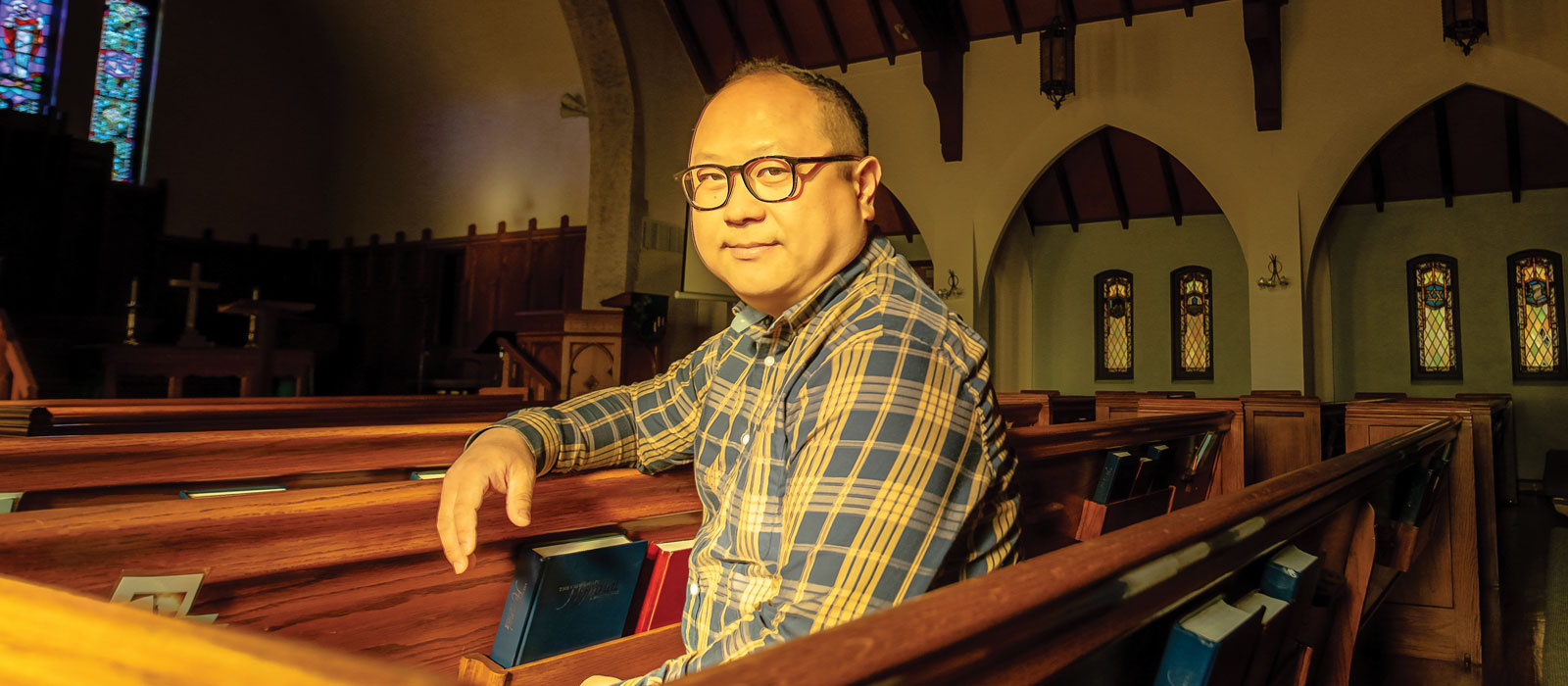
Der Lor (MAT ’17) will be the first to tell you that doing church is messy work. When it comes to ministry—particularly in multicultural contexts—he understands there is no formula for having everything figured out. But Der also trusts that God is present and active in the mess.
These days, Der serves as a pastor in Minneapolis, but his own journey of faith and ministry has been anything but straightforward. Der grew up in a first-generation Hmong American family in a small, White, Midwestern town—he and his siblings were the first people of color to enroll in their school. Religiously, his family were Hmong Shaman. So when Der became a Christian in his early 20s, his conversion was inevitably tangled up in knotted threads of family, culture, race, and religion.
“That my family is Shaman was constantly on the backburner,” Der says. “It created this tension that never went away.” Being a minority in a predominantly White church environment added layers to that tension, which accompanied him as he grew in his faith.
As Der stepped into ministry roles and pursued a call to pastoring, he grappled more intentionally with his identity—along with how this identity tied into his theological understanding. Through this exploration, Der learned about the importance of context and culture as vehicles of theology. He learned about colonial religious approaches across history that continue to impact the church—and his life—today. He learned about both intergenerational trauma and the blessings his specific culture brings to the Lord’s body. He learned that it mattered that he was Hmong, it mattered that his family was Shaman, and it also mattered that he was formed in a predominantly White evangelical church. “So much of my backstory is rediscovering Hmong ethnic identity within predominantly White evangelical spaces and trying to detangle some of that and decolonize my own faith,” he shares. “And aside from my ethnic heritage, what is a part of my Christian faith that is true to who I am? That’s what I’m exploring.”
His exploration—a key component of his journey as a minister—took Der to Fuller, where he says Professor Daniel D. Lee and the Asian American Initiative (now the Asian American Center) played a helpful part. Der learned to more deeply interrogate the things that have shaped him and to scrutinize the many parts of his story. However, he’s also learning about the necessary and fruitful work of putting the pieces back together, with the Spirit’s guidance. “All my life, I’ve been living into this. The name of the game is to decolonize. But then what’s left of me? That was kind of an existential crisis,” he says. “Now, with new relationships and with new mentors and with God, I’m trying to be more constructive.”
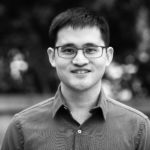
JEROME BLANCO (MDiv ’16) is editor in chief of FULLER magazine and FULLER studio.
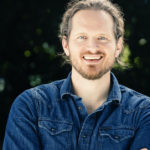
NATE HARRISON is director of creative production, video, and photography
at FULLER studio. Find more of his work at NateCHarrison.com.
Der Lor (MAT ’17) will be the first to tell you that doing church is messy work. When it comes to ministry—particularly in multicultural contexts—he understands there is no formula for having everything figured out. But Der also trusts that God is present and active in the mess.
These days, Der serves as a pastor in Minneapolis, but his own journey of faith and ministry has been anything but straightforward. Der grew up in a first-generation Hmong American family in a small, White, Midwestern town—he and his siblings were the first people of color to enroll in their school. Religiously, his family were Hmong Shaman. So when Der became a Christian in his early 20s, his conversion was inevitably tangled up in knotted threads of family, culture, race, and religion.
“That my family is Shaman was constantly on the backburner,” Der says. “It created this tension that never went away.” Being a minority in a predominantly White church environment added layers to that tension, which accompanied him as he grew in his faith.
As Der stepped into ministry roles and pursued a call to pastoring, he grappled more intentionally with his identity—along with how this identity tied into his theological understanding. Through this exploration, Der learned about the importance of context and culture as vehicles of theology. He learned about colonial religious approaches across history that continue to impact the church—and his life—today. He learned about both intergenerational trauma and the blessings his specific culture brings to the Lord’s body. He learned that it mattered that he was Hmong, it mattered that his family was Shaman, and it also mattered that he was formed in a predominantly White evangelical church. “So much of my backstory is rediscovering Hmong ethnic identity within predominantly White evangelical spaces and trying to detangle some of that and decolonize my own faith,” he shares. “And aside from my ethnic heritage, what is a part of my Christian faith that is true to who I am? That’s what I’m exploring.”
His exploration—a key component of his journey as a minister—took Der to Fuller, where he says Professor Daniel D. Lee and the Asian American Initiative (now the Asian American Center) played a helpful part. Der learned to more deeply interrogate the things that have shaped him and to scrutinize the many parts of his story. However, he’s also learning about the necessary and fruitful work of putting the pieces back together, with the Spirit’s guidance. “All my life, I’ve been living into this. The name of the game is to decolonize. But then what’s left of me? That was kind of an existential crisis,” he says. “Now, with new relationships and with new mentors and with God, I’m trying to be more constructive.”
JEROME BLANCO (MDiv ’16) is editor in chief of FULLER magazine and FULLER studio.
NATE HARRISON is director of creative production, video, and photography
at FULLER studio. Find more of his work at NateCHarrison.com.
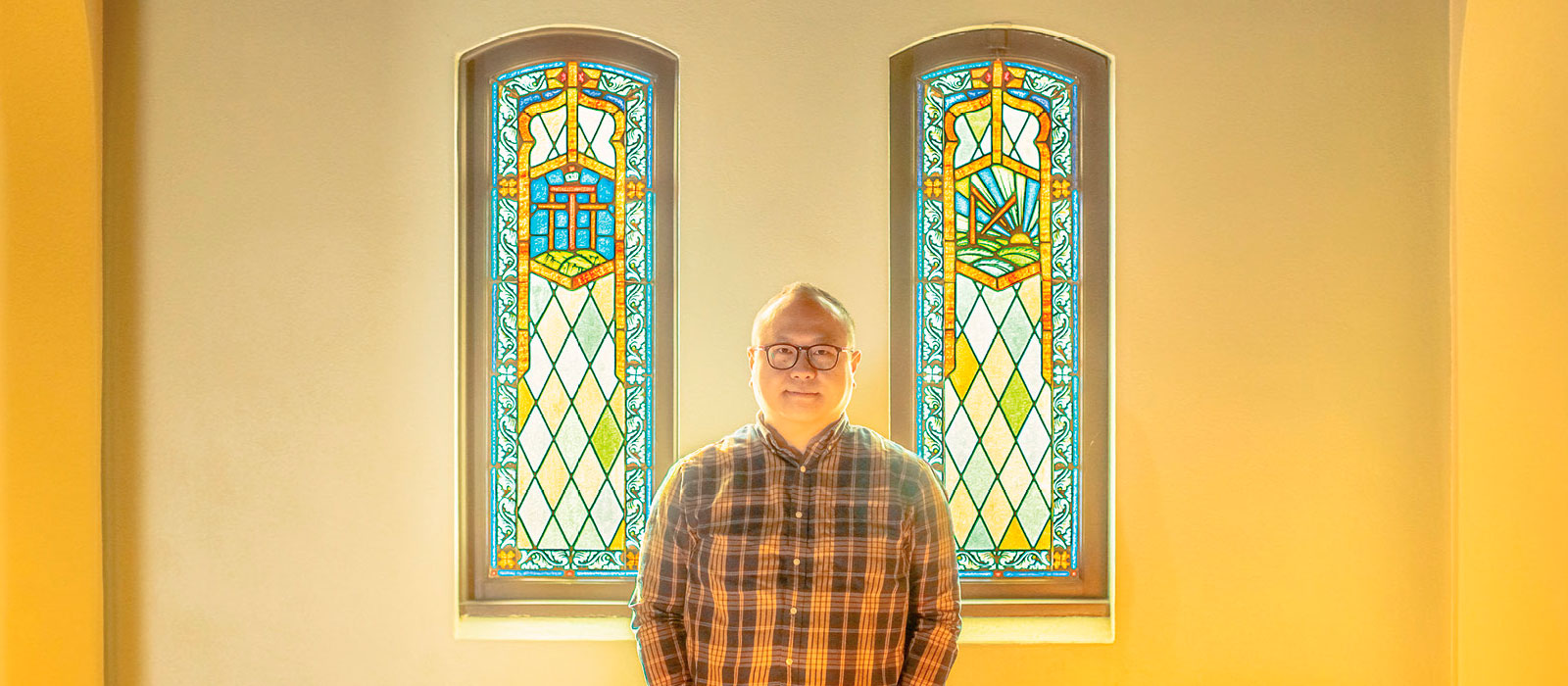

Shortly before graduating from Fuller, Der received an invitation from a second-generation Hmong American church to serve as a bivocational pastor—a very rare opportunity as there are fewer than 10 second-generation Hmong American churches in the entire country. “This church reached out to me and asked if I’d be interested in launching their second campus,” he says. “It seemed like the stars had aligned.”
Der would be able to live out his call to ministry while leaning into his identity as a Hmong American, putting into practice what he’d been learning. “I said yes to the opportunity and moved to the Twin Cities for the church,” he says. “After six months on the ground, it was clear it wouldn’t work.”
Differences in recognizing power imbalances in the church—and the ministry practices that resulted from this dissonance—made the season short lived. He understood there would have to be a longer and messier road ahead when it came to reconstructing faith and integrating what he’d learned about identity, context, and ministry.
Next along that road came a brief but fruitful season at a small, multiethnic church plant. Der was a pastoral resident alongside a married couple, a role that stretched and grew him in new ways. “She was Black and her husband was White,” he says. “We learned what it was like to share power. There were so many levels of intersectionality.” Being a team of Asian, Black, and White meant learning dynamics of leadership, race, gender, and power in new ways. Der also shares that he had to grow in his awareness of his own male privilege and of what he knew of male normativity. Although he ultimately had to move on in order to find financially sustainable employment (another element of the messy reality of ministry), Der says, “It was a really positive experience.”
Today, Der is a pastor at Bethlehem Covenant Church, a congregation with largely Swedish roots. It’s another experience from which Der is continuing to grow—another context where he’s been reconstructing his theological understanding. He’s found that with all of his training and experience, he has much to offer the church, while the church at the same time has much to offer him. A big lesson he has learned is that this is what the church is really about: “They shape me, and I shape them.”
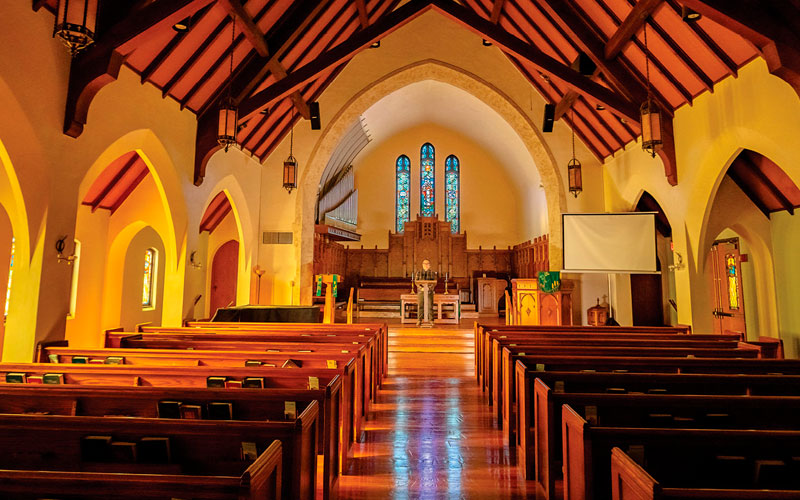

During this season, Der has learned a great deal about worship and community and discipleship, but the congregation has also shared much with him about Swedish culture and traditions, some of which even have similarities to Hmong traditions. “For those who are open to sharing traditions with me,” Der says, “it is likewise a gift to the community when I exchange Hmong American or Asian American traditions and experiences with them.”
Now, as Der continues his own formation—pursuing a ThM focused on Asian American theologies and cohosting the Hmong American Christian Podcast—he is dedicated to not only share what he’s learning with Hmong American communities but also to invite those in other communities into their own exploration and appreciation of their unique stories. He says, “My hope is that the manner in which I pastor and lead would invite each and all of us to hold all our particularities even as we are one body under Christ.”
Der says, “I’ve had to let go of essentialist assumptions. We’re all porous, hybridic people. I’m learning about theology and culture, and about how God transcends culture yet God’s revelation can only come to us through cultural mediums. And it’s cool to take doctrines of revelation and allow myself to be a medium for God through these different communities.”
When asked the question of what an ideal multicultural church looks like, in light of his experiences, Der actually says such a question isn’t one that can be answered. Church isn’t formulaic, he explains. Instead, it’s organic and highly dependent on context—on who and when and where. “It’s never fixed. It can’t be. It’s an economy. It would involve every group—and every faction would be confronted with their own particularity. Every group would need to renegotiate who they are in light of the other. Which is what I see Jews and Gentiles doing in the New Testament.”
Der says, “Multiethnic ministry is really hard. It isn’t glamorous. It’s messy.” But Der understands that this mess is the way God has chosen for the church to be the church. It’s a body of different people, constantly changing as individuals and as communities. He says, “The thing the local church needs is for different people to rub off on one another, while knowing that none of us are essential, static people.” And here Der points to the glorious picture depicted in Revelation 7: “A great multitude … from every nation, tribe, people, and language, standing before the throne and before the Lamb.”
As he directs the counseling center of Pasadena’s Lake Avenue Church, Tsega Worku strives to create a space of healing and restoration for the hurting.